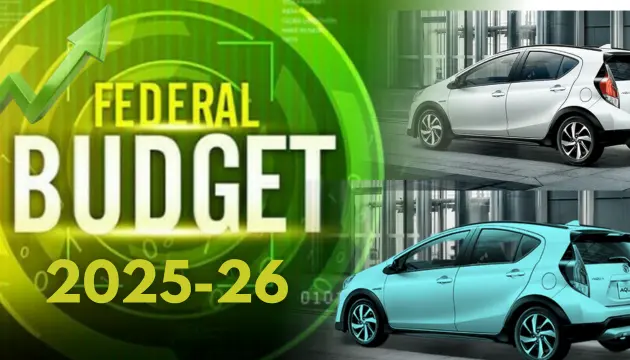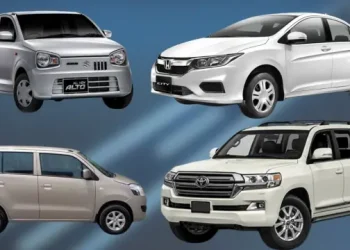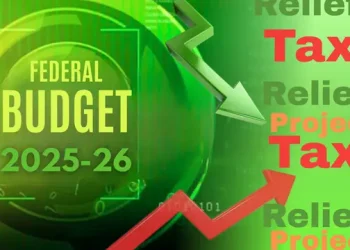ISLAMABAD: The federal government is set to present the 2025-26 budget on June 2, with a focus on fiscal reforms and economic balance. Sources say tax relief on imported vehicles and reduced development spending are part of the plan, as talks continue with the IMF.
Revenue and expense targets for next year
Sources say the government has set a revenue target of Rs 19,090 billion for the upcoming fiscal year, while total expenses are estimated to reach Rs 26,057 billion.
To meet IMF targets, the government aims to reduce the fiscal deficit from 5.6% to 5.1% and maintain a primary surplus of Rs 2,010 billion. The debt-to-GDP ratio is expected to fall from 77.6% to 75.6%.
Relief expected on imported car taxes
To fulfil IMF conditions, the government is considering a reduction in taxes on imported vehicles. Proposals include lowering customs duties by 5% to 30% on small cars (up to 850cc) and larger vehicles (up to 1801cc).
If approved, this move could lead to a noticeable drop in car prices, offering relief to consumers. The IMF has also advised reducing heavy import taxes to support economic balance.
Environmental tagging now part of budget planning
The Ministry of Finance has directed all ministries to submit environmental tagging forms. For the first time, subsidies and grants in the federal budget will be classified based on their environmental impact.
Development budget cut; key projects at risk
Planning Minister Ahsan Iqbal has expressed concern over the drastic cut in the development budget. The Ministry of Finance has proposed an Indicative Budget Ceiling (IBC) of Rs 921 billion—about 16% less than the revised Rs 1.1 trillion of the current year, and far below the Rs 2.9 trillion requested by the Planning Commission.
Iqbal warned that the low allocation could delay many key projects and raise their costs. Around 200 slow-moving projects are expected to be shut down. The number of provincial schemes under the Public Sector Development Programme (PSDP) will also be reduced.
Major cost hikes and irregularities in mega projects
The minister highlighted sharp cost escalations in major infrastructure projects. The Diamer-Bhasha Dam’s cost has risen from Rs 480 billion to Rs 1.5 trillion, while the Dasu Hydropower Project has gone from Rs 500 billion to Rs 1.7 trillion.
ALSO READ >> >>Govt plans 4% sales tax on Careem, InDrive, Yango rides in Islamabad
He also revealed serious irregularities in the Neelum-Jhelum Hydropower Project. For instance, the contractor was mobilised before hiring a consultant, and an unqualified CFO with a geography degree was appointed.
Call for reforms in WAPDA and project management
Iqbal called for appointing a qualified civilian—preferably an international hydrology expert—as the new WAPDA chairman. He also urged for improved oversight in managing large national projects.
Focus on job creation under Uraan Pakistan
He said upcoming development funding will align with the government’s “Uraan Pakistan” programme, which is expected to create over 120,000 direct and indirect jobs across the country.
Important planning meetings scheduled
The Annual Plan Coordination Committee (APCC) will meet on May 23 to finalize development proposals. The National Economic Council (NEC) is expected to approve macroeconomic and development targets on May 26 or 27.













